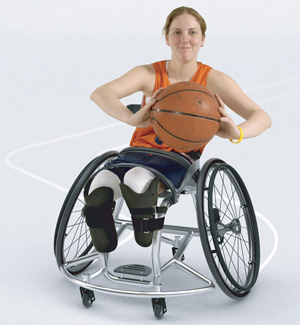
The SAID principle
The SAID principle stands for Specific Adaptations to Implied Demands (Holcomb, Baechle, & Earle, 2000). This applies to any human being regardless of ability or age.
Speaking in basic principles, our bodies will adapt specifically to the demands we place on it. So if you stress the body with aerobic based exercise, implied demand, it will compensate with adapting the cardiovascular system. Likewise, strength training will adapt with increased muscular strength and so on. According to this principle, doing cardiovascular exercise will not necessarily increase strength and increasing strength will not necessarily increase cardiovascular measures. This is a basic understanding and there is, obviously, carryover between systems as well as a difference in response depending on the type of cardiovascular and strength training. In general, you want to select exercises that are specific to your goals. Your body will learn to respond to the stress you place on it.
A child's way of getting stronger is through play. Stop-start activities are often the foundational and normative activities for young children in early elementary school.
In pre-adolescence, children are engaged in more skill based activities such as T-ball, softball, baseball, and soccer.
Pre-pubescent children can gain strength during activities, but muscles do not hypertrophy. In puberty or adolescence, strength gains occur through resistance activity such as gym based activities that involve resistance.

General Guidelines for Exercise Prescription
